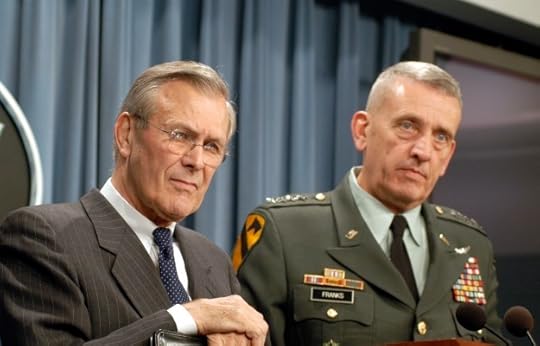More on command and control: It is difficult because it is inherently political -- especially so in limited war

By Capt. Rosemary Mariner, USN (Ret.)
Best Defense guest columnist
Tom posed the question of why
are we so bad at command and control? Because they are intrinsically political, I doubt it is possible to have
a "good" combined command structure in limited coalition wars. Civilian
command and NATO demands during the Korean War (under the auspices of the
United Nations with U.S. President Truman designated the executive agent) drove
MacArthur nuts. One reason Vietnam C2
looked suspect was that MACV had to at least keep up appearances that the South
Vietnamese government was in charge of something. Undeclared limited wars, especially as part
of ad-hoc coalitions or even formal alliances, are inherently difficult to
command or control.
Nor is this just a limited war problem. The WW I command structure was a
deliberate attempt to keep the American Expeditionary Force from being used as
replacement cannon fodder (amalgamation) for the Allies. After Congress
declared it, Wilson took the country to war as an "associate power" so America
could perform an independent military role in defeating the central powers, thus
enabling it to play a major part in shaping the post-war world. Pershing
understood his marching orders. From a
pure military viewpoint, this made little sense. Conflicts with WW II
divided command structure in the Pacific (in no small part to appease
MacArthur) drove many of the post-war unification debates and ultimately the
National Security Act of 1947. The whole "jointness" thing was never
simply about the services working together. It is about statutory centralized command and control, ergo the unified
command structure.
Given the huge challenges of coalition
warfare operating under U.N. resolutions, command and control in the Gulf War was
a big success story. Operation Desert
Storm, the first major post-Vietnam and post-Goldwater Nichols Act military
operation, allowed CINCCENT the advantage of a clear war aim to eject the
Iraqis from Kuwait. (According to
Schwarzkopf's 1992 autobiography, going to Baghdad "to finish the job" was
never considered. Coalition and allied
support was only to liberate Kuwait. Had
we taken all of Iraq, we would have been "like the dinosaur in the tar pit,"
still there, by ourselves, years later.) The Joint and Combined Command structure had problems, but it worked.
Perspective wise, if "military
efficiency" were the yardstick, then we would have the German/Prussian General
Staff. As a republic, military efficiency has never been the primary
driver, much to the chagrin of Emory Upton and folks unfamiliar with the
reasons behind America's long standing distrust of professional armies evident
in Article I of the U.S. constitution. This document gives the president and
Congress control of all things military, including command structures. The generals advise, not decide. Like
others, I get frustrated when C2 issues are framed as strictly military
problems while ignoring the fact that the armed forces are wisely under
civilian command. And I'm not an apologist for generals; under civilian
control of the military, vertical accountability extends to our civilian masters.
Rosemary
Mariner is a scholar-in-residence at the University of Tennessee's Center
for the Study of War and Society. Prior
to retirement, she served as the CJCS Professor of Military Studies at the
National War College.
Thomas E. Ricks's Blog
- Thomas E. Ricks's profile
- 436 followers



